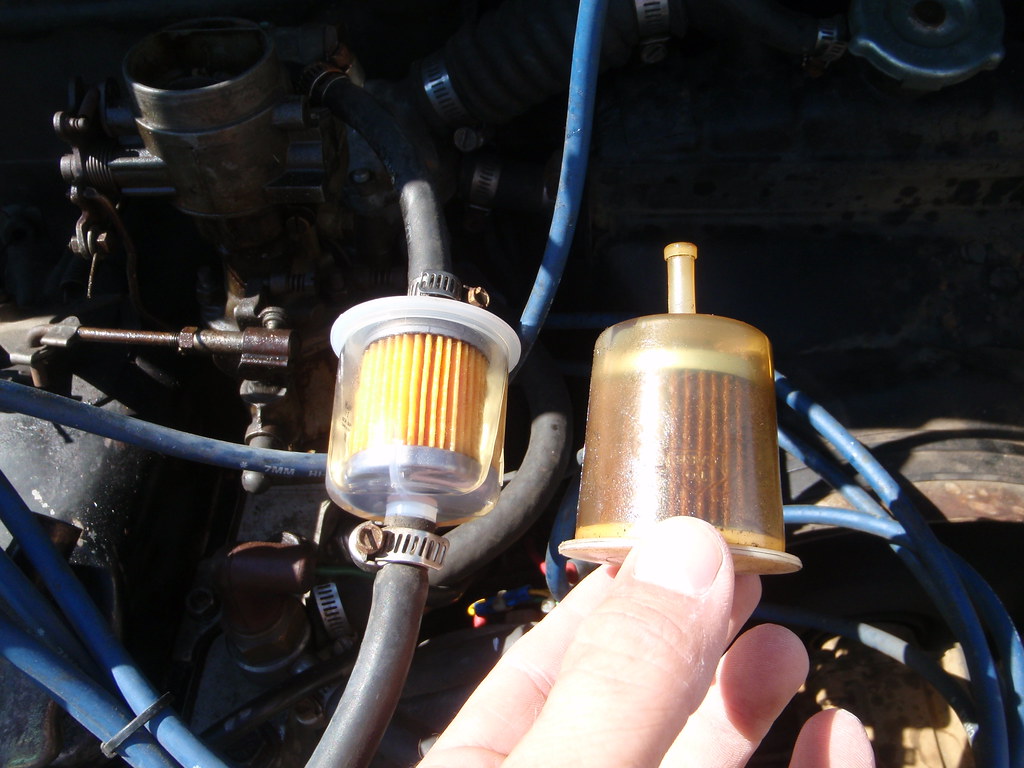Fuel Filter Near Me: Finding Reliable Service

Finding a reliable “fuel filter near me” is crucial for maintaining your vehicle’s health and performance. A clogged or faulty fuel filter can lead to a range of issues, from reduced fuel efficiency to engine damage. This comprehensive guide will help you understand the importance of fuel filters, how to identify when they need replacement, and how to locate a trustworthy service provider nearby.
Understanding the Role of a Fuel Filter
The Fuel Filter Near Me Primary Function is to remove contaminants from the fuel before it reaches the engine. These contaminants can include dirt, rust, sediment, and other particles that can damage sensitive engine components like fuel injectors and the fuel pump. By ensuring clean fuel delivery, the filter contributes to optimal engine performance, fuel efficiency, and longevity.
Why a Clean Fuel Filter Matters
- Improved Engine Performance: A clean filter allows for a smooth and consistent fuel flow, ensuring proper combustion and optimal engine power.
- Enhanced Fuel Efficiency: A clogged filter restricts fuel flow, forcing the engine to work harder and consume more fuel. Replacing it can improve your vehicle’s mileage.
- Protection of Engine Components: Clean fuel prevents damage to fuel injectors and the fuel pump, reducing the risk of costly repairs.
- Reduced Emissions: Proper fuel filtration contributes to cleaner combustion, minimizing harmful emissions.
- Prevention of Engine Stalling and Misfires: Contaminants can cause fuel delivery issues, leading to engine stalling or misfires.
Signs Your Fuel Filter Needs Replacement
Recognizing the signs of a failing fuel filter is essential for timely maintenance. Here are some common indicators:
- Difficulty Starting the Engine: A clogged filter can restrict fuel flow, making it harder to start the engine.
- Engine Misfires: Insufficient fuel delivery can cause the engine to misfire, resulting in rough idling or hesitation.
- Reduced Engine Power: A restricted fuel flow can limit the engine’s power output, especially during acceleration.
- Decreased Fuel Efficiency: If you notice a sudden drop in your vehicle’s mileage, a clogged fuel filter could be the culprit.
- Engine Stalling: In severe cases, a clogged filter can completely cut off fuel supply, causing the engine to stall.
- Unusual Noises from the Fuel Pump: The fuel pump may strain and make whining sounds when struggling to push fuel through a clogged filter.
- Check Engine Light: The check engine light may illuminate, indicating a fuel delivery issue.
Finding a “Fuel Filter Near Me”
When searching for a service provider, consider these factors:
- Reputation and Reviews: Check online reviews and ratings to gauge the service provider’s reliability and customer satisfaction.
- Experience and Expertise: Look for mechanics with experience in fuel system maintenance and filter replacement.
- Certifications and Credentials: Ensure the service provider has qualified technicians and relevant certifications.
- Pricing and Transparency: Obtain clear estimates and compare prices from different providers.
- Warranty and Guarantees: Inquire about warranties on parts and labor.
- Availability and Convenience: Choose a location that is easily accessible and offers convenient appointment scheduling.
- Parts Quality: Ensure that the shop uses high quality fuel filters from reputable brands.
Methods to Find Local Service Providers:
- Online Search Engines: Use search engines like Google, Bing, or Yelp to find “fuel filter near me” or “car repair near me.”
- Online Directories: Explore online directories like Yellow Pages or automotive-specific directories.
- Automotive Apps: Utilize automotive apps that provide service provider listings and customer reviews.
- Dealerships: Contact your vehicle’s dealership for recommended service centers.
- Local Mechanic Shops: Ask for recommendations from friends, family, or neighbors.
- Auto Parts Stores: Many auto parts stores have partnerships with local mechanics or offer installation services.
Steps for Fuel Filter Replacement
While some experienced DIY enthusiasts might attempt fuel filter replacement, it’s often best left to professionals. The process can vary depending on the vehicle’s make and model, and improper installation can lead to fuel leaks or other issues. A professional mechanic will:
- Locate the Fuel Filter: The filter’s location varies by vehicle, often found along the fuel line, near the fuel tank, or in the engine compartment.
- Depressurize the Fuel System: This is crucial to prevent fuel spills and potential hazards.
- Disconnect the Fuel Lines: Carefully disconnect the fuel lines from the filter, taking precautions to avoid fuel spillage.
- Remove the Old Filter: Remove the old filter from its housing.
- Install the New Filter: Install the new filter, ensuring proper orientation and secure connections.
- Reconnect the Fuel Lines: Reconnect the fuel lines and tighten the connections.
- Pressurize the Fuel System: Restore fuel pressure and check for leaks.
- Start the Engine: Start the engine and verify proper fuel delivery and engine performance. Watch it
Preventive Maintenance
To prolong the life of your fuel filter and maintain your vehicle’s performance, follow these tips:
- Regular Inspections: Include fuel filter checks in your regular vehicle maintenance schedule.
- Use Quality Fuel: Use fuel from reputable gas stations to minimize contaminants.
- Adhere to Manufacturer Recommendations: Follow the manufacturer’s recommended replacement intervals for your vehicle’s fuel filter.
- Address Issues Promptly: If you notice any signs of a failing fuel filter, address them immediately.
By understanding the importance of fuel filters, recognizing the signs of a failing filter, and finding a reliable “fuel filter near me,” you can ensure your vehicle’s optimal performance and longevity.